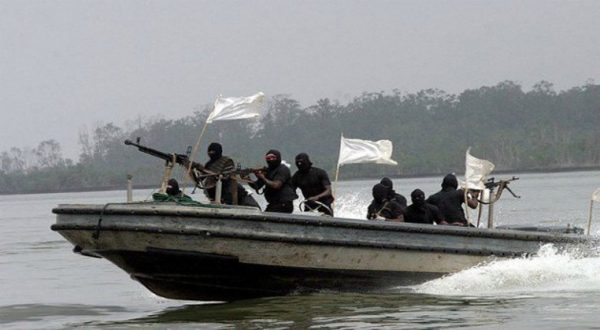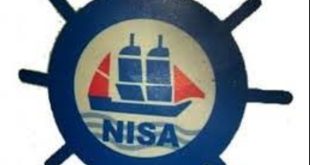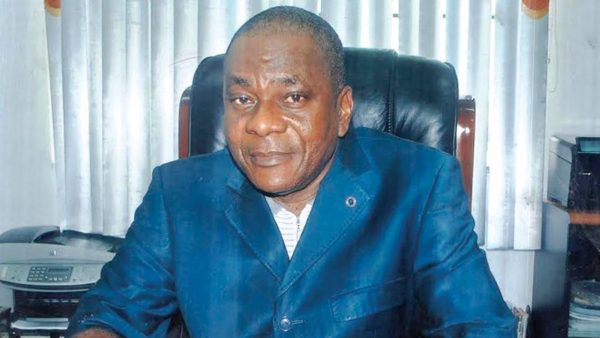
· Insurance companies fleece over $1bn yearly from Nigeria – Omatseye
· Nigeria pays highest insurance premium among war risk nations
By Kenneth Jukpor
Despite the recent launch of the Deep Blue Project to curb the menace of piracy and sea robbery in Nigerian territorial waters and the entire Gulf of Guinea (GoG), experts have expressed worry that the war risk toga on Nigerian waters mayn’t be expunged as global insurance giants earn over $1billion from Nigerian bound-ships yearly.
Across the West African coast, pirate attacks gave rise to the Joint War Committee (JWC) of Lloyds’ of London. JWC pronounced that the area from the limit of Togo and Benin republic maritime boundaries all the way along the gulf of Guinea to the maritime boundary of the republic of Nigeria and Cameroon as a ‘War Risk Zone’.

The effect of JWC’s action was that the foreign mother vessels which are usually insured by the Protection and Indemnity club would not risk going into the ‘war risk’ areas because the moment they transgress, their insurance premium increases by more than five times.
Following the launch of Deep Blue Project, the Director General of Nigerian Maritime Administration and Safety Agency (NIMASA), Dr. Bashir Jamoh kick-started a campaign for Nigeria’s removal from the war risk zone.
However, some experts posit that the war risk toga is a commercially-driven decision skewed in favour of some highly placed global giants that are bent on maintaining the flow of income at the expense of Nigerian economy and its citizens.
Speaking with MMS Plus recently on the high war risk insurance premiums in Nigeria, a former President of African Shipowners Association (ASA) Barr. Temisan Omatseye described the problem as a commercial one, adding that the beneficiaries will explore strategies to keep the ‘free money’ coming in.
Omatseye, who is also a former Director General of NIMASA, stated that he wouldn’t be surprised if new piracy reports from the International Maritime Bureau (IMB) and other sources show that piracy incidents in the country have dropped but the premium remains.
His words: “War risk isn’t a government transaction, it is a commercial transaction handled by the Joint War-risk Committee (JWC) in London. Over there, they sit down and do the risk analysis of every region before they determine countries to have an additional war risk premium. This is a commercial thing which is a business for some highly placed private operators. These individuals are making huge sums from it and a change in the IMB report might not be able to stop them. They will simply find another excuse to help that war risk premium there.”
Noting that insurance firms are making $400million to $1billion yearly from Nigeria for Extra War Risk Insurance (EWRI) alone, Omatseye also lamented that other nations that are war risk zones aren’t being charged the same charges that are levied against Nigeria, “there has to be strategy to curb this issue of war risk premium,” he stressed.
Omatseye also accused some global shipping companies of positioning their vessels for attacks by staying beyond their scheduled time on Nigerian waters.
“What happens in Nigeria is that vessels just come into the country, whereas there is the Ship Entry Notice which is given to the Port Authority. The role of the Port Authority begins when a vessel comes into the Harbours but NIMASA’s role starts from 250 nautical miles. Why isn’t NIMASA demanding this data before the vessels leave the point of origin? NIMASA can track the vessel from wherever it leaves, for instance, London and know when it stops and Abidjan or any other place before it gets into Nigeria. The agency should know the whereabouts of any vessel heading to the country so that in the event that anything happens, before the ship captain calls, the agency already has the vessel on its radar. This is doable with the technology NIMASA has today.”
“NIMASA can also take advantage of the ship entry notice which states who the crew are, the origin of the vessel, time of arrival and the kind of cargo onboard, etc. With that, NIMASA knows the vessels in the country, their purpose and how long they are expected to be in Nigeria. We shouldn’t have a lot of vessels sitting at the anchorage as targets when they aren’t meant to be on Nigerian waters in the first place,” he explained.
According to the Chief Executive Officer of Sopetro Marine Limited and Chairman of Shipping and Governing Board Member of the Nigerian Content Development and Monitoring Board (NCDMB), Mr. Mina Oforiokuma, global insurance firms collect between $150million to $200million per year for just NLNG vessels and crude on war risk.
“This is free money because there was hardly any claim paid. These insurance companies were making over $600million from Extra War Insurance premium from Nigeria as at the time we did that research. The prices would have gone up today. This sum was for just vessels, not including rigs, supply vessels, SFIVs, FPSOs, among others”, he said.
Recall that Nigerian Shippers’ Council (NSC) having been unsettled over the years with the unwarranted high war risk surcharge on Nigeria-bound cargo by the shipping lines, hosted Global Shippers’ Forum (GSF) engaging and protesting against the classification of the nation’s territorial waters as War Risk Zone, but the efforts towards declassification were futile.
According to the International Maritime Bureau (IMB), Nigerian shippers in the last three year have paid about $2.74billion as insurance premium on vessels and cargoes destined for Nigeria account of what Nigerian maritime stakeholders described as wrong classification.
In addition to Nigeria, other African nations categorized as war risk countries are: Togo, Libya, Somalia, Benin Republic, Eritrea, the Gulf of Guinea, and some parts of Cameroon.
Speaking with our correspondent, the Chairman of Starz Group, Engr. Greg Ogbeifun described NIMASA’s move to end war risk premium as a good one for the nation’s shipping industry.
“It is a very good move that would help those of us in shipping. There is no reason why the insurance premium for Nigeria should be on such a high risk scale because it is simply an issue of perception,” he said.
According to him, with the emergence of the Deep Blue Project, “it is clear to the world that Nigeria is serious and the nation has taken the lead in the bid to curb the menace of piracy in the Gulf of Guinea.”
“Since the country started talking about the Deep Blue Project, particularly after the commissioning by President Muhammadu Buhari, we hardly hear anything about piracy. Now that piracy is becoming a thing of the past, it is only proper to expect that the insurance risk is brought down to the normal one. This way, shipping into Nigeria will be competitive,” he added.
Meanwhile, there are concerns that the Deep Blue Project assets may not be sufficient to cover the nation’s territorial waters.
Omatseye shared this position, noting that “although Deep Blue Project assets would assist in the fight against piracy, it can’t effectively cover the 84,000 nautical miles of Nigerian waters which comprises Exclusive Economic Zones (EEZ). Don’t forget that they are also considering the possibility of taking up more responsibility in the Gulf of Guinea (GoG). So, besides the assets which will be operated by the Navy, Airforce and Army, there has to be a strong collaboration with the intelligence community onshore, especially with the Marine Police, DSS, and other security agencies.”
He admonished the apex maritime regulatory agency to explore a good intelligence network that would enable the agency to determine where the risk areas are.
”I’m sure that if NIMASA does a risk analysis, they would have a basic idea of where the attacks are coming from. Therefore, they can increase their intelligence in those areas identified as high risk because most of these pirates are moving with high speed boats.”
He noted that another issue which hasn’t been properly dealt with is that when pirates go out to the high seas, they also commandeer bigger boats on the high seas and use these boats as a launch pad for the attacks.
“The C4i could be very handy in studying some of these things because there are multiple facets of this menace of piracy. While the Deep Blue Project is a step in the right direction, NIMASA should focus on the areas that seem to be prominent with attacks. As they do so, they should also note that the pirates would always try to be proactive by changing bases but NIMASA has to be smart to move to the new areas to combat the pirates,” Omatseye said.
 MMS PLUS NG – Maritime, Aviation, Business, Oil and Gas News Online Newspaper with coverage in Maritime, Oil and Gas, Aviation, Power and Energy as well as Financial News
MMS PLUS NG – Maritime, Aviation, Business, Oil and Gas News Online Newspaper with coverage in Maritime, Oil and Gas, Aviation, Power and Energy as well as Financial News









